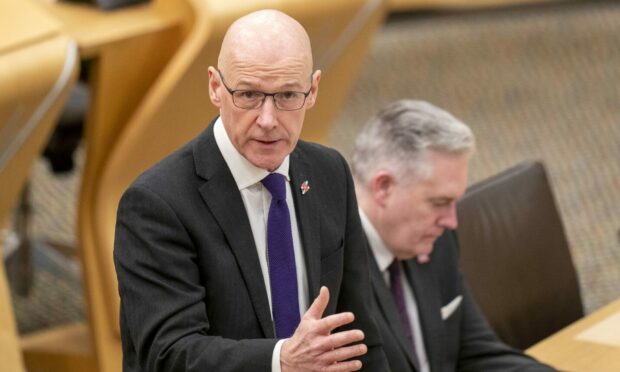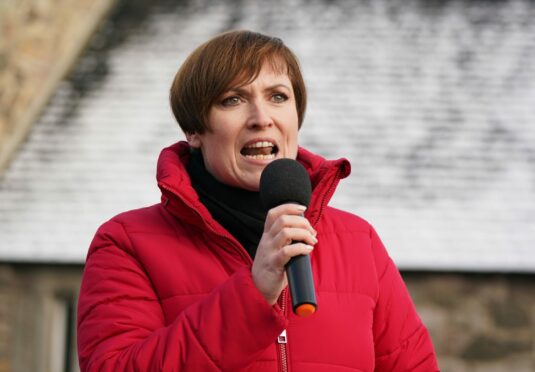Nurses and teachers are striking, jobs are on the line and bills are soaring – will the SNP finance chief use tax powers to meet demands in Thursday’s budget?
John Swinney is already facing warning that jobs and vital public services could be put at risk unless more money is spent.
Here are the big challenges he will need to address in his spending plans for 2023-24.
‘Inevitable’ job losses
The Convention of Scottish Local Authorities, known as Cosla, sent out an “SOS” to the SNP.
The group, which represents the country’s 32 local authorities, warns councils will “struggle” to maintain essential services such as schools, social care, road maintenance, waste collections and street cleaning unless they are given more money.
Cosla also says there will be “inevitable” job losses as councils face a funding gap of at least £1 billion in 2023/24.
For education, councils need to find £500 million of savings, the equivalent of 8,500 teachers.
And social care budgets will be short by £300m, the equivalent to 5,000 social care workers.
Cosla warns this could lead to care home closures.
Councillor Katie Hagmann, Cosla’s resources spokeswoman, said: “We are at a crisis point like never before – the impact of the Scottish Government’s current spending plans for social care is serious, and they need to be reconsidered.”
It also says libraries could close and spending on museums and galleries could be slashed by up to 90%.
The government has also been told to protect measures such as the Tay Cities Deal and the rollout of the R100 rural broadband programme in their spending.
‘Fair pay’ needed for nurses
Nurses have been considering strikes over their pay.
The Royal College of Nursing Scotland says patients and families are “suffering” because there are not enough nurses.
Colin Poolman, director of RCN Scotland, says any cuts to social care in the budget could lead to more hospital admissions and longer hospital stays.
He said: “Our previous warnings have not been listened to.”
Is taxing the wealthy the answer?
The Scottish Trades Union Congress says the government should tax the wealthiest in society to make sure workers are not “left out in the cold”.
It has published an economic paper saying £1.3bn could be raised by introducing a wealth tax and by replacing council tax.
Roz Foyer, STUC general secretary, said: “Scotland has wealth. It’s the richest who have it.”
Economic experts at the Fraser of Allander Institute also say the government should use the budget to set out how it will use its “significant” devolved tax powers to generate more money for public services.
Professor Mairi Spowage, director at the institute, said he challenges Mr Swiney has been dealing with “ease” a bit for next year.
Additional money announced at the autumn statement generated around £1bn, offsetting the inflationary pressures on the budget, she said.
“But there is also flexibility that the deputy first minister has for the next financial year that were not available to him for this year – the Scottish Government does have tax powers that could be used if he wishes, to raise more revenue,” she continued.
Swinney: ‘Difficult decisions’
Mr Swinney has already warned “difficult decisions” will need to be taken, but added money will go to those who need it most.
He says the SNP’s budget priorities will be:
- Eradicating child poverty
- Transforming the economy to deliver net zero
- Creating sustainable public services.
Mr Swinney said: “The economic challenges we face also require a fundamental change in the way we manage public spending.
“The Bank of England is predicting the longest recession for a century so this budget will set in motion reforms that will place our finances and public services on a more sustainable and resilient footing for the future.”
Where can I watch the budget?
Mr Swinney will set out the 2023/24 Scottish budget at 2pm on Thursday 15 December.
A live stream of his statement can be viewed on the Scottish Parliament website and The Courier will be covering the budget in full on our website and social media feeds.




